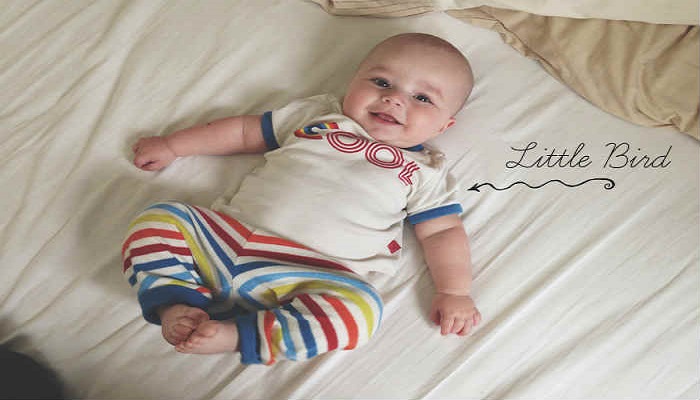
Monsoon brings many changes in the surroundings. Rains definitely bring relief from the hot and scorching summers, but also bring along humidity, mosquitoes, diseases and lots of air bacteria. Babies are prone to illness during this season. The common problems during the rainy season are viral infections, blocked nose, congested chest, joint and muscle pain, dark colour stools etc. Nothing can be done to completely avoid all these but a little care when you are at home or outside can help you to keep your baby safe during monsoons.
Indoor Care For Babies During Monsoons
If you have an infant at home, you need to have a fool proof indoor care for him. Below tips will help you keep your baby safe from monsoons:
- Clean baby, healthy baby: Babies could sweat a lot because of humidity in the atmosphere. Wipe your baby with a clean cloth, and do check his neck, underarms, ears, private areas, and other places for any fungal or skin infections
2. Maintain food hygiene: If your baby has started to eat solids, make sure that he is always given fresh food to eat. Use boiled and cooled water to mix in his formula. Wash the baby’s feeding utilities with boiled water. A kitchen geyser would really help!
3. Wash hands: Every time you change your baby, and before feeding, make sure you wash your hands with a disinfectant. If your baby is eating solids, keep his hands clean at the onset and end of a meal. Cut the nails short so that nothing goes in the mouth
4. Dress them warm: Infants or new-borns need to change quite often – especially nappies. During the rainy season it becomes difficult to completely dry their clothes, some amount of moisture remains on them. Even little moisture laden clothes can send chill waves to the baby – never dress the little one in them. Iron such clothes to make them warm and dry before you dress your baby in these
5. Dress right: Weather changes often during monsoon. At times, there is humidity in the environment, the next hour it becomes cold due to rains. Have her wear dresses made of cotton fabric during humidity and go for semi –woollen sort of fabric when it’s cold
6. Change the nappy: You need to check baby’s nappy very frequently during rainy season as infants pee comparatively more during rains. A wet diaper can make your baby feel cold, and can also provide a breeding place for bacteria. Take care to change the nappy very frequently, lest your baby develops rashes. Also, give your baby some nappy free time
7. Safeguard from mosquitoes: Mosquito bites are very harmful for babies so use mosquito nets to keep them safe. Dress them in long pants and full-sleeved top to prevent them from the mosquito or other insect bites. You can use natural mosquito repellents as well
8. At the hint of an infection: If you see any symptom of viral in your baby like fever, sneezing, joint pain (which is difficult to find out in infants), contact your paediatrician. Keep your baby away from those who are already suffering from viral or a cough and cold, to avoid infections
9. Eat healthy if you breastfeed: Breast-milk contains important antibodies that help to strengthen the baby’s immune system. A baby should be breastfed atleast 6 months of age. If you are eating healthy, the baby will largely benefit
10. Keep the home clean: Check that there is no stagnant water in or around the house. Get the drains cleaned, and all electrical loose fittings done properly. With all this, keep your surrounding and home clean not to let mosquito breed around which could cause many diseases. Make sure there are no leakages at the roof or room walls
Keep some medicines at home like infant nasal spray, Vicks balm, syrup for fever (as suggested by your baby’s doctor). A ready medical kit can come handy if the need arises.
Outdoor Care For Babies During Monsoons
Changing seasons can cause your little one to fall sick. You should try not to venture out until the weather stabilises, but if you have to, the following tips will come in handy:
- Avoid the showers: Try not to go out if it’s raining. Even if you travel by car, or are carrying an umbrella, the monsoons cause the temperature to go down suddenly and your baby could feel cold
2. Carry water and food: If you formula feed her do not forget to carry boiled water from home to prepare his feed. If he is on semi-solids, carry something to eat from home. Do not give your baby outside food during monsoons
3. Ensure vaccinations are up-to-date: Make sure she gets all vaccinations on time. Flu vaccination is common these days for children during the rainy season. Ask your doctor about it
4. Outdoor play: If you have a toddler, you will not be able to keep him indoors all the time. Let him enjoy the drizzle a bit but do supervise. If he is out, make sure he is dressed properly and adequately
5. Mosquito safety: For a toddler who wants to play outside, dress him in full clothes and apply some mosquito repellents to keep him safe from insects
6. Maintain hygiene: If it seems difficult to wash hands, again and again, do carry a bottle of a sanitizer and use it as and when required
7. Avoid crowded places: In monsoons, people often get sick and flu is common. Avoid going to crowded places lest your baby catches an infection
8. Keep your surroundings clean: Play and enjoy the rains with your baby in the vicinity of your house, so make sure that there is no standing water or foul smell in the vicinity, say your home garden or porch.

Post Your Comments